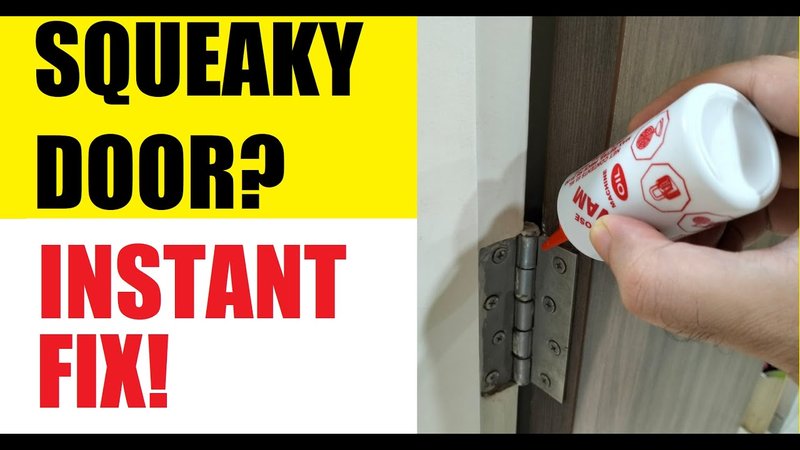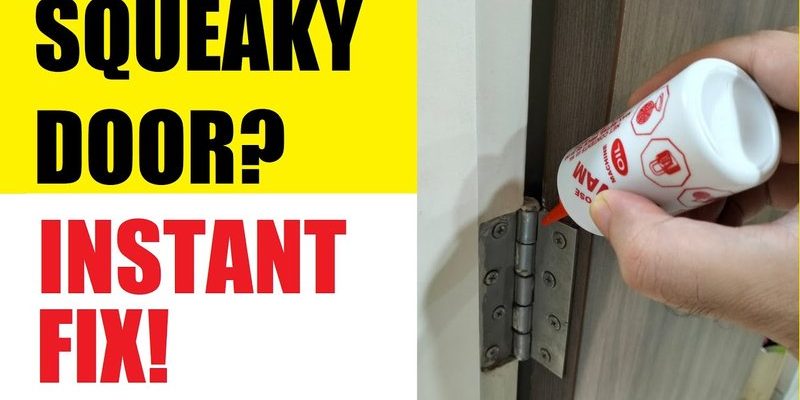
Picture this: your door hinge is like a small machine, working tirelessly to let you in and out. When it’s functioning well, you barely notice it. But when it starts to make noise, it’s a signal that something isn’t right. Understanding why this happens can help you prevent further issues down the line. Let’s dive into the reasons behind that grinding hinge and how you can fix it, step by step.
Common Reasons for Grinding Noises
When you hear a grinding noise from your door hinge, it’s usually a sign that something is amiss. The most common culprits are dirt, rust, or lack of lubrication. Over time, dust and grime can build up in your hinge, much like how dirt accumulates on a neglected bike chain. When you open the door, this debris creates friction, resulting in that grinding sound.
Another reason might be rust. If your door hinges are made of metal, they can corrode, especially if they’re exposed to moisture. Rust creates an uneven surface, making it hard for the hinge to move smoothly. Think of it as trying to slide a rusty bike chain—no fun at all!
Lastly, lack of lubrication is a major cause of noise. If the oil or grease in the hinge has worn off, the metal surfaces will rub against each other, leading to grinding. Doors, like any moving parts, need a little TLC. Regular maintenance can silence those pesky noises.
How to Diagnose the Problem
Diagnosing the issue with your door hinge is quite simple and can save you from bigger headaches later on. Start by observing the door while it’s being used. Is the noise constant, or does it only happen at specific angles? This observation can help pinpoint where the problem lies.
Next, take a closer look at the hinge itself. Check for dirt or debris stuck in the hinge. If you see anything, it’s time for some cleaning. Grab a cloth or an old toothbrush to remove the grime. If the hinge looks rusty, you may need to replace it altogether.
Lastly, test the hinge’s movement. Does it feel stiff when you try to open or close the door? If so, it’s likely time to lubricate. You might be wondering what to use—don’t worry, we’ll cover that soon!
Cleaning Your Door Hinge
If you’ve found dirt or grime on your hinge, cleaning it is a straightforward process. Here’s how you can tackle it:
1. Gather your supplies: You’ll need a cloth, a toothbrush or small brush, and a cleaning solution. A mixture of water and mild soap works well.
2. Wipe the hinge: Use your cloth to scrub the outside of the hinge, removing any visible dirt.
3. Use a brush for tough spots: Dip your toothbrush in the cleaning solution and gently scrub between the hinge plates. This should help dislodge any stubborn grime.
4. Rinse and dry: After cleaning, wipe down the hinge with a clean damp cloth to remove any soap residue, then dry it thoroughly.
Cleaning might solve your problem, but if the grinding persists, it’s time to move to the next step.
Lubricating the Hinge
If your door hinge is clean but still making noise, it’s likely time for a little lubrication. Here’s how to do it:
1. Select the right lubricant: A silicone spray or light machine oil is ideal. Avoid using WD-40 for this purpose; while it’s good for cleaning, it doesn’t provide lasting lubrication.
2. Apply the lubricant: Open the door halfway. Hold the lubricant can about six inches from the hinge and spray a small amount directly onto the hinge’s pivot points.
3. Work the hinge: After applying the lubricant, open and close the door several times. This will help distribute the lubricant evenly.
4. Wipe away excess: Use a cloth to catch any drips or excess lubricant that might run down the door.
Regular lubrication can prevent future noise and keep your door functioning smoothly.
When to Replace the Hinge
Sometimes, no amount of cleaning or lubrication will fix a grinding hinge. If the noise continues, or if you notice any of the following issues, it might be time for a replacement:
– Visible rust or corrosion: If your hinge is severely rusted, it can affect its functionality.
– Cracked or broken parts: A damaged hinge can lead to more problems, including misaligned doors.
– Stiff movement: If the hinge feels stuck even after cleaning and lubricating, it may be time for a new one.
Replacing a hinge might sound intimidating, but it’s a simple DIY fix. Just unscrew the old hinge and replace it with a new one of the same size.
Preventing Future Issues
Taking care of your door hinges is essential for smooth operation. Here are some simple steps to prevent future grinding noises:
– Regular cleaning: Make it a habit to check and clean your door hinges every few months. This small effort can maintain functionality and extend their lifespan.
– Lubricate regularly: A quick spray of lubricant on your hinges can go a long way in keeping them quiet.
– Check for moisture: If you live in a humid area, be vigilant about rust. Consider using stainless steel hinges for added durability.
– Adjust the door weight: If your door is extremely heavy, consider adjusting the hinges or adding a third hinge for extra support.
By following these preventative measures, you’ll ensure your door hinges stay in the best shape possible, keeping your door operations quiet and smooth.
Hearing a grinding noise when you open a door can be annoying, but it’s usually a fixable issue. By identifying the cause—whether it’s dirt, rust, or lack of lubrication—you can quickly return your door to its quiet, smooth operation. With a little regular maintenance, you can keep those hinges happy and your door functioning like new. Remember, just as you wouldn’t ignore a creaky floorboard, don’t let a noisy hinge go unchecked. A little care goes a long way!
